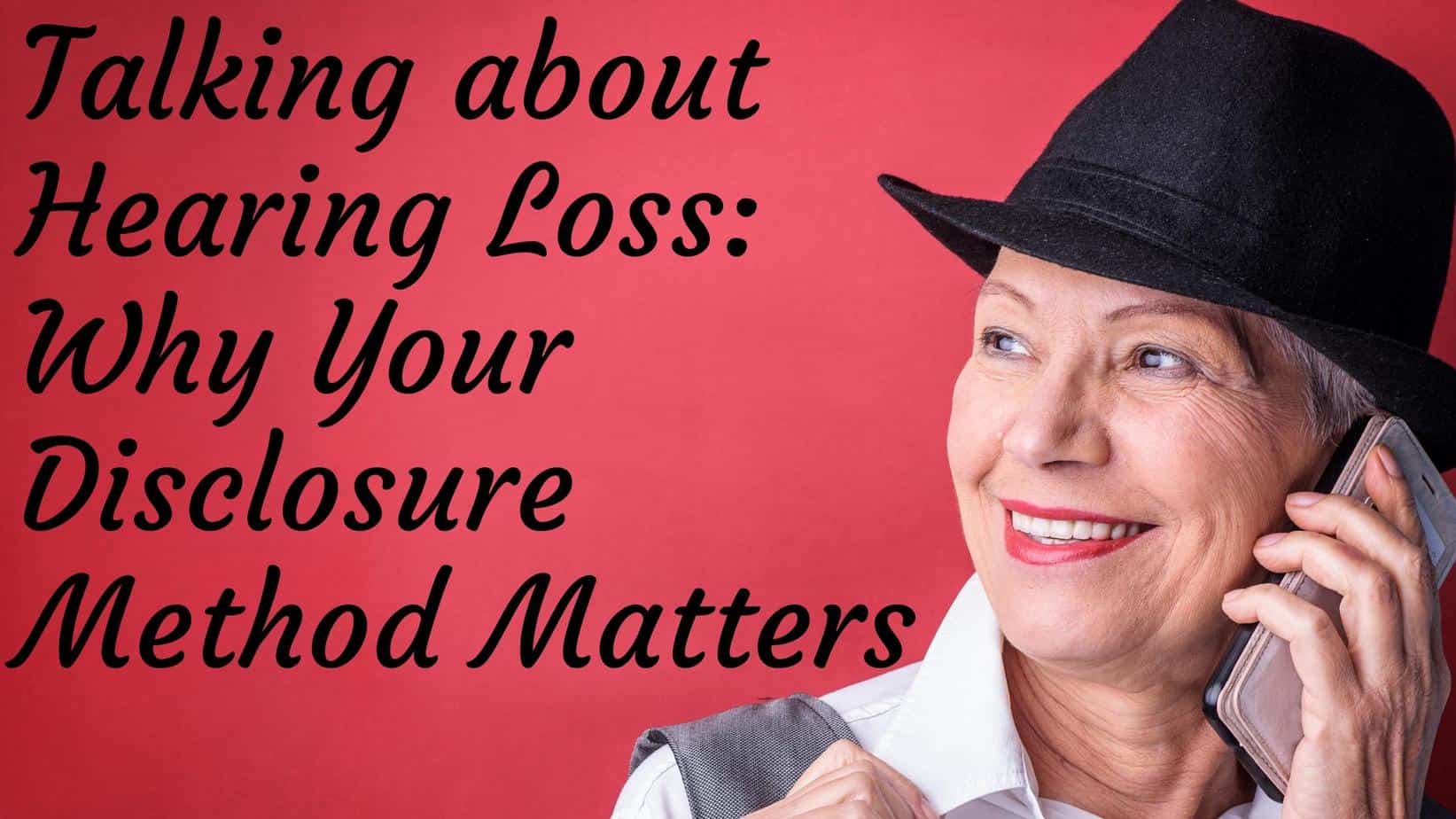
Talking about Hearing Loss: Why Your Disclosure Method Matters
Coming to terms with hearing loss can be a difficult process for some people. Admitting to oneself that hearing ability isn’t what it used to be can cause some disappointment and a host of other emotions. Some people would rather not admit to themselves that hearing ability has changed at all. More commonly, those with hearing loss can struggle to admit to others what they already know from their own experience.
The knowledge of one’s own hearing loss can come with fears that others will make hasty assumptions, judge, or even treat them as if they are incapable. With these concerns in mind, too many people fail to tell others about their hearing loss, sometimes including closest loved ones and family members. With these concerns in mind, let’s take a look at the necessity to disclose hearing loss, as well as the different ways some people go about it.
Non-Disclosure
The first disclosure style is in fact not a disclosure style at all. Non-disclosers tend to skip the step of admitting hearing loss to others and proceed directly to asking for accommodation. If you have ever been in a conversation with someone who asks you to repeat yourself again and again or who tells you to speak up, you are likely dealing with a non-discloser of hearing loss. Although you might get what you need out of a single conversation, the process stops there. The other person in the conversation might think that background noise became too loud, your mind drifted away, or that they are to blame for speaking too softly. The next conversation will likely be a repeated process without any durable solutions.
Basic Disclosure
On the other hand, some people simply disclose hearing loss without asking for any help. In the midst of a strained conversation, a basic disclosure might simply say, “I’m hard of hearing” or “I don’t hear so well these days.” With that information, the other person in the conversation can do their best to accommodate without knowing exactly what steps to take next. Grasping at accommodations such as speaking very loudly, very slowly, or repeating oneself, this other person only has half of the essential information.
Multipurpose Disclosure
The best way to disclose hearing loss is to accompany that admission with a plan of action. Rather than simply telling another person in a conversation that you have trouble hearing, accompany that disclosure with an accommodation strategy that can help. For some people, speaking more loudly is helpful, while others would prefer that you simply look in their direction. Standing a bit closer can help, or perhaps the best approach is to move to a quieter location. This multipurpose disclosure makes it possible to not only accommodate in this individual conversation but also to know that continued accommodation will be needed in the future. The next time you have a conversation, this person should be able to recall what made it easier to communicate.
Seeking Treatment for Hearing Loss
If you have been struggling to hear, it is important to seek treatment from a professional hearing health specialist. Not only will we diagnose the specific features of your condition, but we will also be able to consult with you about your individual hearing needs and the features of your lifestyle that make it difficult to hear. This individualized approach to treatment makes it possible to get the most improvement available with current technology.
If you know that someone you love has hearing loss, despite the method of disclosure, the time is now to have an open-ended, encouraging, and frank discussion about the need for treatment. Accommodations are not a lasting remedy, and you might find that the current strategies you employ to communicate don’t last for long. Simply asking your loved one about their hearing ability and experience is the best step to open the path toward treatment. Listen carefully to what they have to say about their experiences before suggesting that they schedule a hearing test.
